Old Testament
Genesis Exodus Leviticus Numbers Deuteronomy Joshua Judges Ruth 1 Samuel 2 Samuel 1 Kings 2 Kings 1 Chronicles 2 Chronicles Ezra Nehemiah Esther Job Psalms Proverbs Ecclesiastes Song of Solomon Isaiah Jeremiah Lamentations Ezekiel Daniel Hosea Joel Amos Obadiah Jonah Micah Nahum Habakkuk Zephaniah Haggai Zechariah MalachiVerse
2 Kings 14:1 2 Kings 14:2 2 Kings 14:3 2 Kings 14:4 2 Kings 14:5 2 Kings 14:6 2 Kings 14:7 2 Kings 14:8 2 Kings 14:9 2 Kings 14:10 2 Kings 14:11 2 Kings 14:12 2 Kings 14:13 2 Kings 14:14 2 Kings 14:15 2 Kings 14:16 2 Kings 14:17 2 Kings 14:18 2 Kings 14:19 2 Kings 14:20 2 Kings 14:21 2 Kings 14:22 2 Kings 14:23 2 Kings 14:24 2 Kings 14:25 2 Kings 14:26 2 Kings 14:27 2 Kings 14:28 2 Kings 14:29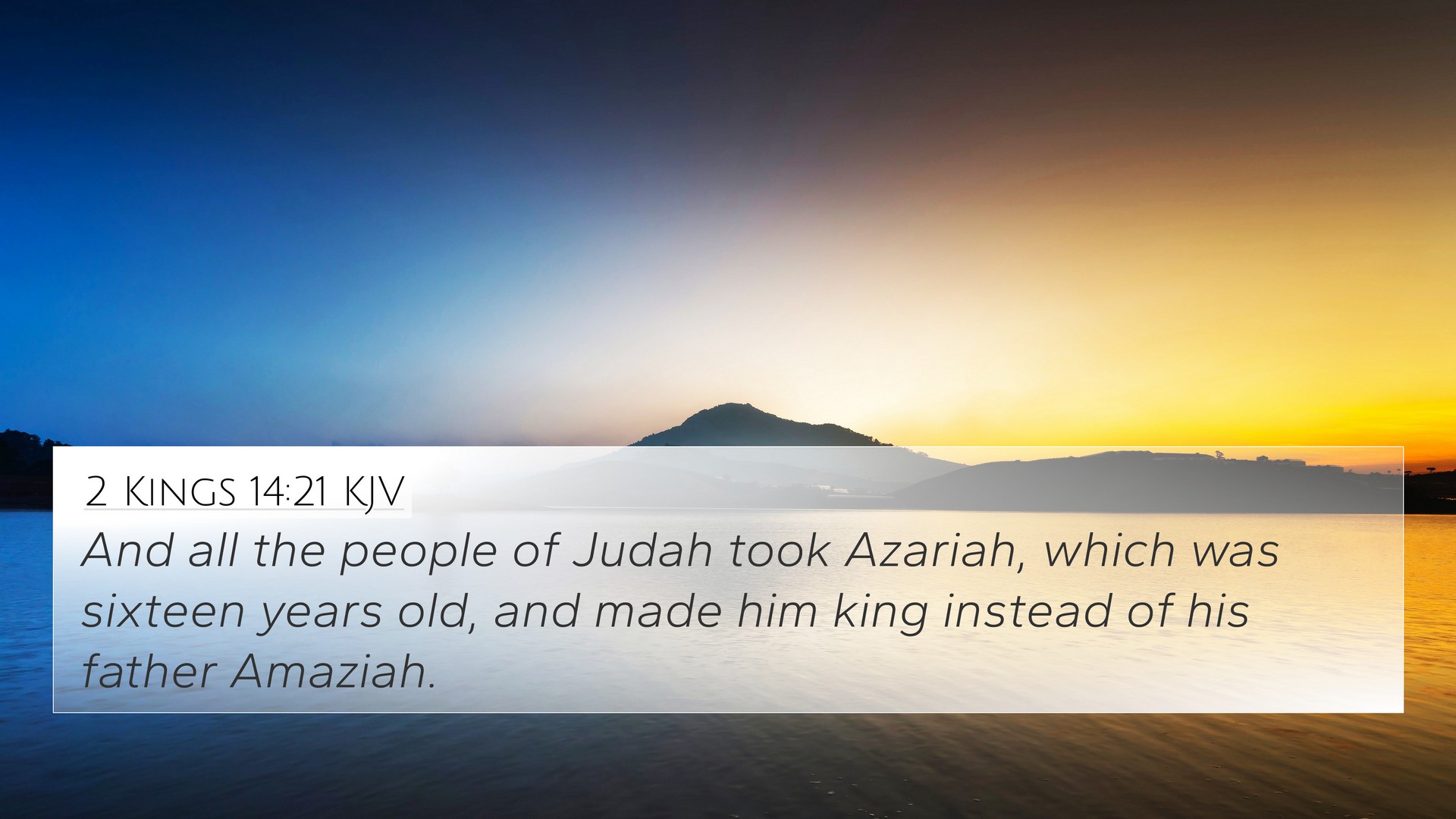

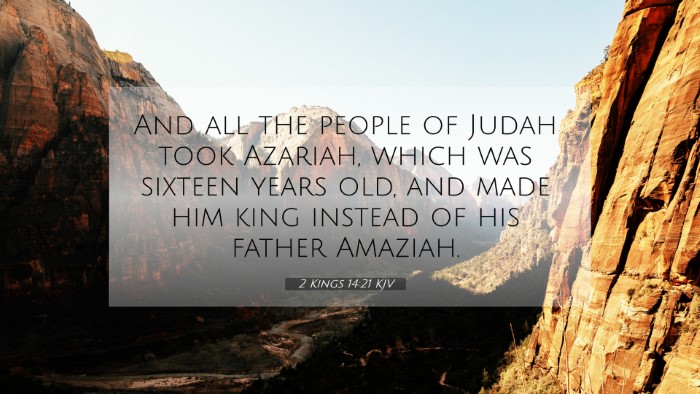
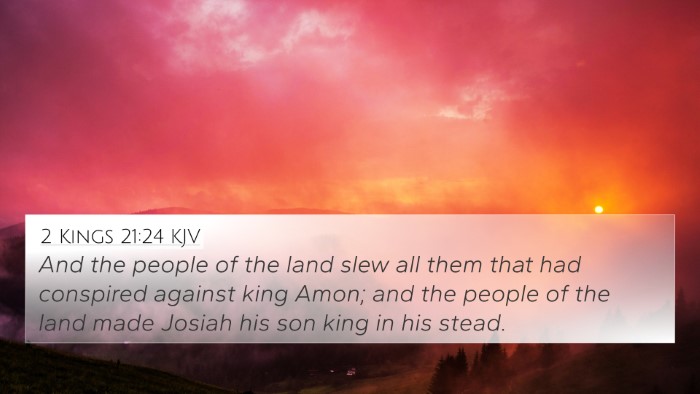
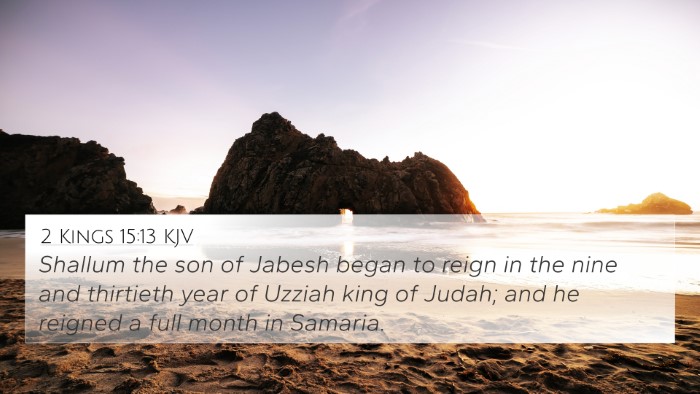
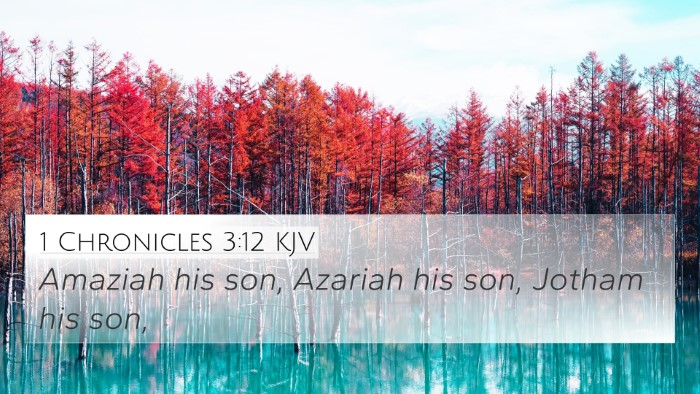

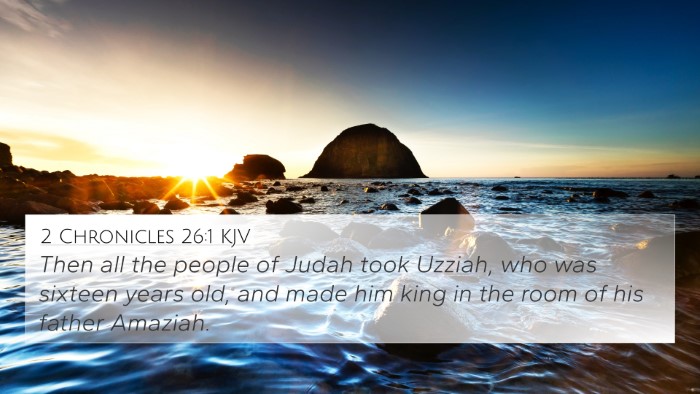
Understanding 2 Kings 14:21
Bible Verse: 2 Kings 14:21 - "And all the people of Judah took Azariah, which was sixteen years old, and made him king instead of his father Amaziah."
Summary of Meaning
This verse presents a pivotal moment in the history of Judah, highlighting the transition of power from Amaziah to his son Azariah (also known as Uzziah). The choice of a young king symbolizes hope and continuity, as the people of Judah seek stability in leadership.
Key Insights from Commentaries
Henry emphasizes the significance of Azariah’s youth as both a challenge and potential for new beginnings. He points out that the people's move to elevate a king so young signifies their hope for change and a fresh start, particularly given the failings of Amaziah.
Barnes remarks on the political context, suggesting that the people's decision to anoint a young king may reveal a desire for a ruler who is more in tune with their needs and aspirations. The action was likely taken with much deliberation, as verses like this often reflect the people's collective will alongside divine providence.
Clarke discusses the implications of a minor reigning king, noting that Azariah managed to ascend to power at a young age, a situation not uncommon in the ancient Near East. This transition suggests the continuation of the Davidic line and the faithful remnant still loyal to God’s covenant.
Connections to Other Bible Verses
2 Kings 14:21 bears connections to several other scriptures, highlighting themes of leadership, divine authority, and the cyclical nature of Israel's monarchy. Here are notable cross-references:
Thematic Connections
The selections above illustrate broader themes such as:
Tools for Bible Cross-Referencing
Utilizing a variety of resources can enhance understanding of the interconnectedness of Biblical texts:
Conclusion
The verse 2 Kings 14:21 is not only a historical account but serves as a rich point for exploration of leadership, divine providence, and God's enduring covenant with His people. Understanding this verse in conjunction with others enhances the depth of biblical study through the practice of effective scriptural cross-referencing.